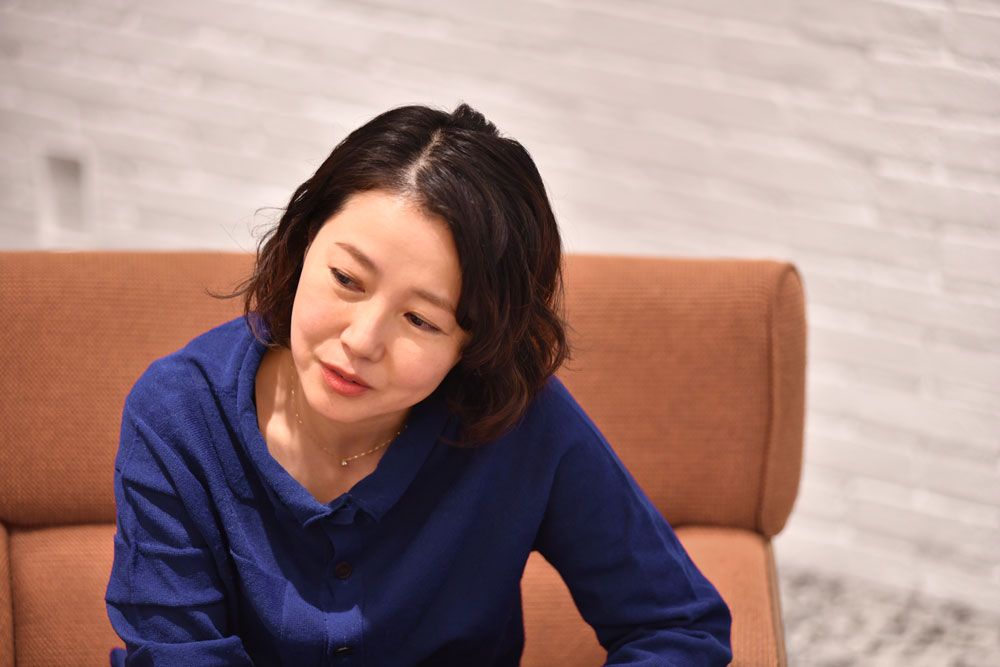!["The Wonderful World" Director Miwa Nishikawa I felt Ryuzo Saki's gaze throughout "Identification Book" [Director's Interview Vol.105]](https://cinemore.jp/images/3d448f9074ea2ddf3ca71468e9b57345e7c3d79afb7c131197c524b146cc9752.jpg)
"The Wonderful World" Director Miwa Nishikawa I felt Ryuzo Saki's gaze throughout "Identification Book" [Director's Interview Vol.105]
"The king is naked!"
Q: I heard that you had an assistant director (*) for the first time in your previous work, `` Eternal Excuse '' (2015), but did you have one this time as well?
(*) Editor's note: Unlike an assistant director, who manages schedules and oversees the production, an assistant works with the director to consider all aspects of the production, such as cuts, angles, dialogue, and editing. If you want to know more, we recommend reading ``About X Related to Movies 2'' (Jitsugyo no Nihon Sha) written by director Nishikawa.
Nishikawa: Yes, it is included.
Q: Isn't that Nanako Hirose?
Nishikawa: It's not Hirose, it's someone else. Hirose is already the director.
Q: That's right. He's already a director. Director Hirose's " Dawn " (19) was really good. On a personal note, I remember watching Lee Chang-dong's `` Burning '' (2018) and being shocked just after that, and then watching ``Dawn'' and being just as shocked.
Nishikawa: I see. I see. I think Hirose will be very happy too.
Q: When I interviewed Director Hirose at the time, I heard that he consulted Director Nishikawa about various things when he was having trouble with the script for "Dawn." Including that time, what do you always talk about with young players like Director Hirose?
Nishikawa: I say some pretty harsh things, so Hirose was at a loss when he was working on ``Dawn.'' I was like, ``Now, at this point in time, I'm saying that.'' (bitter smile) Sometimes you're like, "Oh, I'm sorry, I shouldn't have said that."
At my office, Bunpuku, there are people who are aiming to become directors, and when we're stuck in production or need someone else's opinion, we show them to each other and share our thoughts. Of course, Director Kore-eda is also there. Hirose also saw this edit and gave his opinion.
Q: Director Hirose talked about his experience as an assistant director and the differences between being an assistant director and other things. It was very interesting.
Nishikawa: You can't make a movie without an assistant director, and I think of them as someone you can consult with when directing. However, when it comes to film production, assistant directors only join us about one to two and a half months before filming begins. From there, he gets the script into his head at a tremendous speed, takes charge of the scene, and leaves with a start. Actually, I wish I could hire someone for a long period of time from planning to finishing, but it's difficult because we don't have a studio system right now.
I think that in the past, assistant directors prepared to become directors by being the director's consultant from the very beginning, from planning to script writing, to conducting interviews, and accompanying them all the way to the final touches. However, with the current system, this is difficult. From the director's perspective, it's better to have a companion who can watch things with you from an early stage. As if it were my own compound eye, I would be able to objectively view it and ask myself, ``Is that really okay?''

For this reason as well, I have assistant directors, and they say things that hurt my ears. ``I know, but if I say that now...'' I say this without any hesitation on set. 80% of the time I think, "Shut up!" I'm thinking of making up for it now, really (lol). However, there is an essence of ``The King is naked'' that everyone has vaguely thought about but never said.
Q: It's hard to say, "The king is naked." The most difficult.
Nishikawa: Yes, it's difficult.
Q: I think it's amazing that you can clearly say, "No, but this is what I think," in the atmosphere of filming under various restrictions. It's hard training to think calmly without being influenced by the situation, and to communicate your thoughts.
Nishikawa: I definitely don't want to play a role like that (bitter smile). We need to figure out how to do this so that we don't become hated and seen as a role, and we need to make the staff around us understand the reason for our existence. If you don't show your personality in that situation, you probably won't be able to succeed even if you become a director in the future.
On set, the staff might think, ``Oh, he said something like that again,'' but once that moment is over, the staff will think of you as a friend. In that sense, the job of assistant director may be a good place for training. It's pretty tough though.

